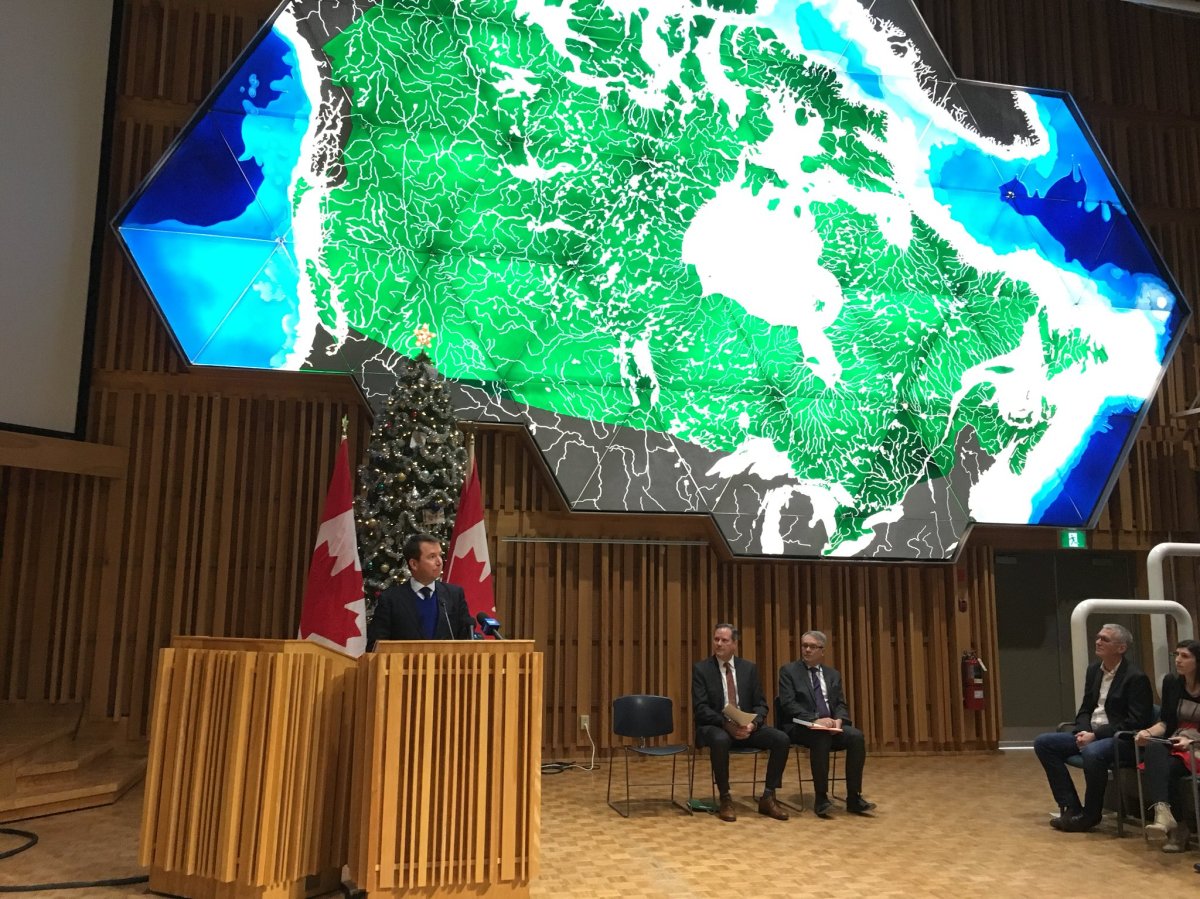The federal government is spending $80 million on oil spill research, looking at how to prevent spills as well as their effect on the marine environment.

“Our government is committed to protecting our marine and coastal areas so that they are safeguarded for future generations,” said Treasury Board President Scott Brison.
He announced the funding Monday at the Bedford Institute of Oceanography in Halifax.
READ MORE: Ottawa kicks in $66 M towards Nova Scotia highway twinning project
Brison said a $45.5-million research program will be set up to foster collaboration among researchers in Canada and around the world, with $10 million a year to bring scientists together to study how oil spills behave, how to clean and contain them and how to minimize environmental damage.
The Centre for Offshore Oil, Gas and Energy Research in Halifax will also get some of the $16.8 million in funding for new scientists and specialized equipment.
It will support oil spill research to better understand how oil degrades in different conditions.
WATCH: Canada’s Fisheries department and Oceana Canada team up to explore the Gulf of St. Lawrence

Also, Brison said in a statement that $17.7 million will be used to enhance ocean models of winds, waves and currents to allow responders to better track spills.
The funds are part of the $1.5-billion Oceans Protection Plan, which is aimed at developing a marine safety system.
“Science will form the foundation of our world-leading marine safety system,” Fisheries Minister Dominic LeBlanc said in a statement.
“This new investment in research and new technologies will allow us to better prevent and respond to potential marine incidents.”
Advanced ocean modelling work will be done in six ports across the country: Kitimat, Vancouver and Fraser River Port in British Columbia; Canso, N.S., Saint John, N.B. and the St. Lawrence River from Quebec City to Montreal.



Comments